Blind Read Through: J.R.R. Tolkien; The Silmarillion, Of The Beginning of Days
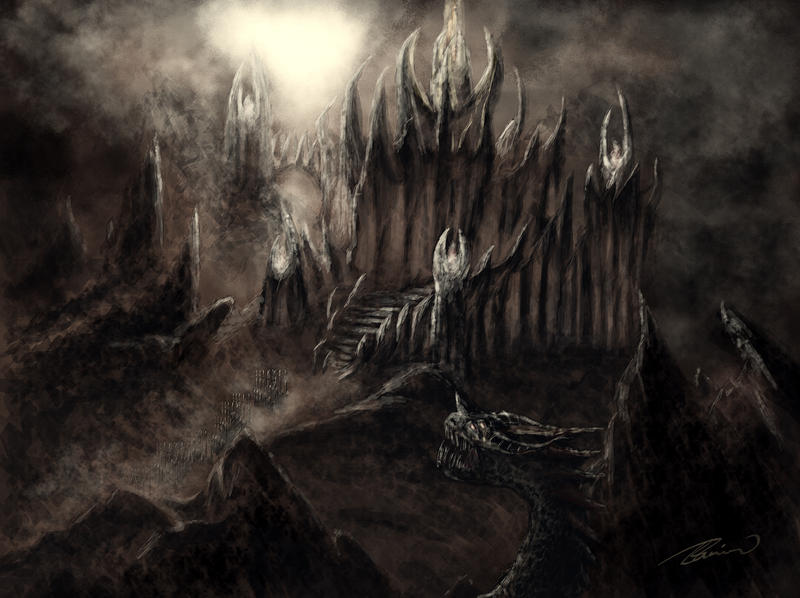
“Behind the walls of the Pelóri the Valar established their domain in that region which is called Valinor; and there were their houses, their gardens, and their towers. In that guarded land the Valar gathered great store of light and all the fairest things that were saved from the ruin; and many others yet fairer they made anew, and Valinor became more beautiful even than Middle-earth in the Spring of Arda; and it was blessed, for the Deathless dwelt there, and there naught faded nor withered, neither was there any stain upon flower or leaf in that land, nor any corruption or sickness in anything that lived; for the very stones and waters were hallowed.“
Welcome back to another Blind Read! This week we begin our pathway into the Quenta Silmarillion and learn of the beginning of the First Age, while getting some very useful backstory into the elves and man.
In the past few weeks we were introduced to the Valar and their predilections and abilities, which is imperative back story as we jump into the Silmarillion.
The story starts with mention of the First War, and if you remember, we don’t really know anything about it, because we’re getting everything from the Eldar, and the First War was before they came into their own in Arda. What we do know is that Melkor fought the Valar for control of the land, until Tulkas the Strong came down and “Melkor fled before his wrath and his laughter.“
With Melkor gone, at least temporarily, the Valar began to build Arda bringing “order to the seas and the lands and the mountains.” Once Yavanna planted seeds, the Valar realized they needed light to help life flourish, so Aulë “wrought two mighty lamps for the lighting of Middle-earth… One lamp they raised near the north of Middle-earth, and it was named Illuin; and the other was raised in the south, and it was named Ormal.”
The land flourished with the Valar and the light of the lamps, but Melkor had spies among the Maiar, “and because of the light of Illuin they did not perceive the shadow in the north that was cast from afar by Melkor.”
Because they didn’t notice Melkor, he came south and “began the delving and building of a vast fortress, deep under the Earth, beneath dark mountains… That stronghold was named Utumno.” His corruption spread from Utumno “and the Spring of Arda was marred.”
Another war broke out and Melkor “assailed the lights of Illuin and Ormal, and cast down their pillars and broke their lamps.” causing “destroying flame (which was) poured out over Earth,” scarring the land. The Valar were able to stop Melkor after this, but it was too late and “Thus ended the Spring of Arda.“
The Valar decided that there was no appropriate place to live, “Therefore they departed from Middle-earth and went to the land of Aman,” and to protect this land “they raised the Pelóri, the Mountains of Aman, highest upon Earth.” Upon the highest mountain Manwë (the Lord of Air and Winds) build his throne. “Taniquetil the Elves name that holy mountain.” Then we get the quote which opens this essay, and we understand that this land of Aman, had now become Valinor.
It was then, once they made their home in Valinor that Yavanna helped grow (through her song) the “Two Trees of Valinor;” Telperion and Laurelin. Telperion bloomed for six hours then stopped, then Laurelin bloomed for another six hours: “And each day of the Valar in Aman contained twelve hours, and ended with the second mingling of the lights, in which Laurelin was waning and Telperion was waxing.” It was a time of great joy for the Valar, to be free of Melkor and to continue to develop Valninor:
“Thus began the Days of the Bliss of Valinor; and thus began also the count of time.”
What significant about this is the aspect of time. The age of the Children of Ilùvatar was coming and the instance of time was it’s catalyst. The Elves are immortal, they “die not till the world dies, unless they are slain or waste in grief.” But men are mortal and they need to have a concept of time to understand what their life capability is. We’ll see more of this later in the essay.
But in this coming of the Children of Ilùvatar, Melkor still dwelt in Middle-earth, which is where the Children took up their home.
The Valar rarely came across Pelóri, but when they did they taught the Elves “the lore of all craftsmen: the weaver, the shaper of wood, and the worker in metals; and the tiller and husbandman also.” But it was the Noldor, the “most skilled of the Elves” whom were “the first to achieve the making of gems; and the fairest of all gems were the Silmarils, and they are lost.” I’m trying to take this one step at a time, but seeing as this history is called “The Silmarillion,” I’m sure they will come into play soon.
The Vanyar Elves were gifted the art of “song and poetry” by Manwë whom was named the “vicegerent of Ilùvatar, King of the world of Valar and Elves and Men, and the chief defense against the evil of Melkor.” he even wields a “scepter of sapphire, which the Noldor wrought for him.”
Then there was also Ulmo of the Oceans and seas. I’m going to give you a long passage and break it down, because to me, this is the most important passage in this chapter:
“In the deep places he gives thought to music great and terrible; and the echo of that music runs through all the veins of the world in sorrow and in joy; for if joyful is the fountain that rises in the sun, its springs are in the wells of sorrow unfathomed at the foundations of the Earth… And thus it was by the power of Ulmo that even under the darkness of Melkor life coursed still through many secret lodes, and the Earth did not die; and to all who were lost in that darkness or wandered far from the light of the Valar the ear of Ulmo was ever open; nor has he forsaken Middle-earth, and whatsoever may since have befallen of ruin or of change he has not ceased to take thought for it, and will not until the end of days.”
Not only is this passage poetic and beautiful, but it also gives form to the philosophy of Middle-earth as the personalities of the Valar form the very fabric of reality. There is and always will be a subset of people whom believe that the ideal of The Lord of the Rings is a power struggle between good and evil. Between happiness and sorrow. Between love and loss.
The end of the books and movies (as Frodo heads to Valinor) there is a certain forlorn sorrow, but infused within that thread is hope, and that’s what strikes me the most in this passage above. There is joyfulness, but that joyfulness is countered by “sorrow unfathomed.” The point is if there were only goodness, there would be no joyfulness. Men and Elves are the Children of Ilùvatar and thus are more open to emotion and feeling. The Valar only have a little bit. So if everything were always joyful, the point of joyfulness disappears because there is no counterpoint. It is only upon feeling sorrow that we understand what Joy truly is.
This sorrow does not mean the terror that Melkor had wrought, or even Sauron in The Lord of the Rings. This is speaking of the normal every day sorrow, and that comes along with the concept of time which the Valar created with the two great trees of Valinor. To burrow this down to brass tacks, it is the sorrow that Men have a finite time on Middle-earth that creates the joyfulness that they flourish off of. What Ulmo does is put the sorrow in “the foundations of earth” meaning both that it was around at earth’s inception, but it’s also deep in a well; deep in the earth; physically and metaphorically tying the song of the sorrow to Middle-earth as a place. Michael Ende used this concept to full effect in his Swamps of Sorrow of The Neverending Story.
But what is the point of having Men and Elves live on Middle-earth? The Elves “shall be fairest of all earthly creatures, and they shall have and shall conceive and bring forth more beauty that all my Children.” So the Elves are there to make Middle-earth a wonderous and beautiful place. But what of Men?
“Therefore he willed the hearts of Men should seek beyond the world and should find no rest therein; but they should have a virtue to shape their life, amid the powers and chances of the world, beyond the Music of the Ainur, which is as fate to all things else; and of their operation everything should be, in form and deed, completed, and the world fulfilled unto the last and smallest.“
For this the Elves fear Men, “for it seems to the Elves that Men resemble Melkor most of all the Ainur, although he has ever feared and hated them, even those that serve him.” The Elves are there for much the same reason the Valar were… to continue to make the world beautiful. Man was there to give direction and purpose. This is a powerful responsibility and it’s why many are corrupted during their journey, but it also gives rise to the joyful sorrow that one feels as they look out across the crashing waves and into the depths of the beautiful Ocean and it’s terrible wine dark composure.
Join me next week as we move onto chapter two and learn more of the Valar Aulë and Yavanna!

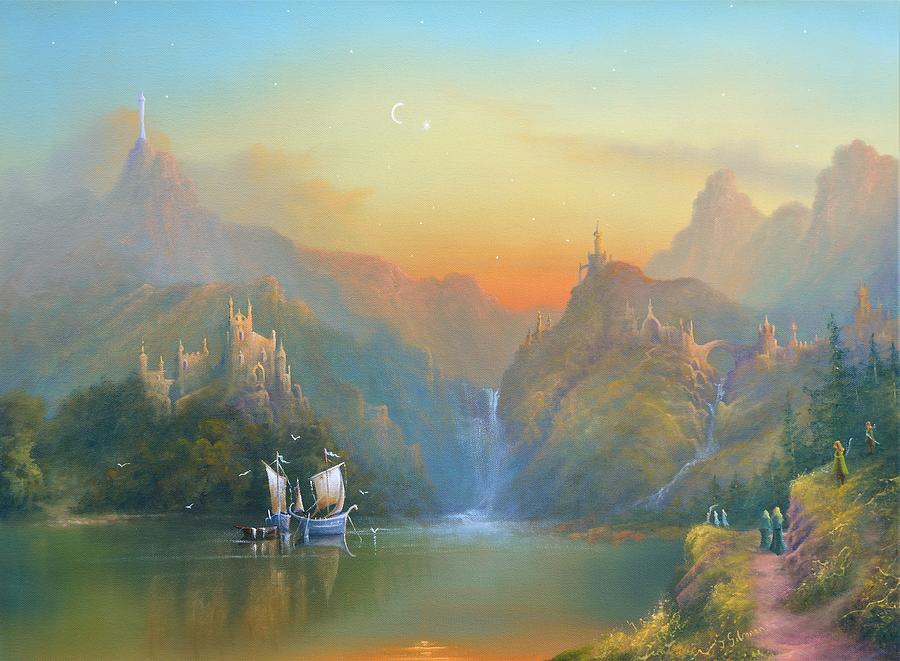
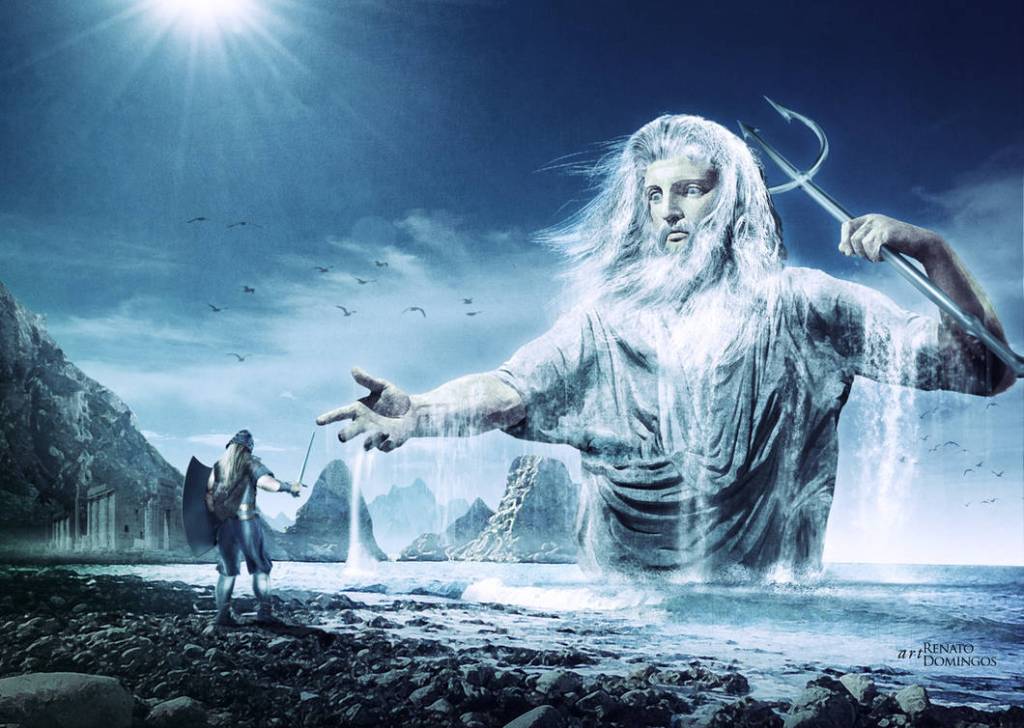
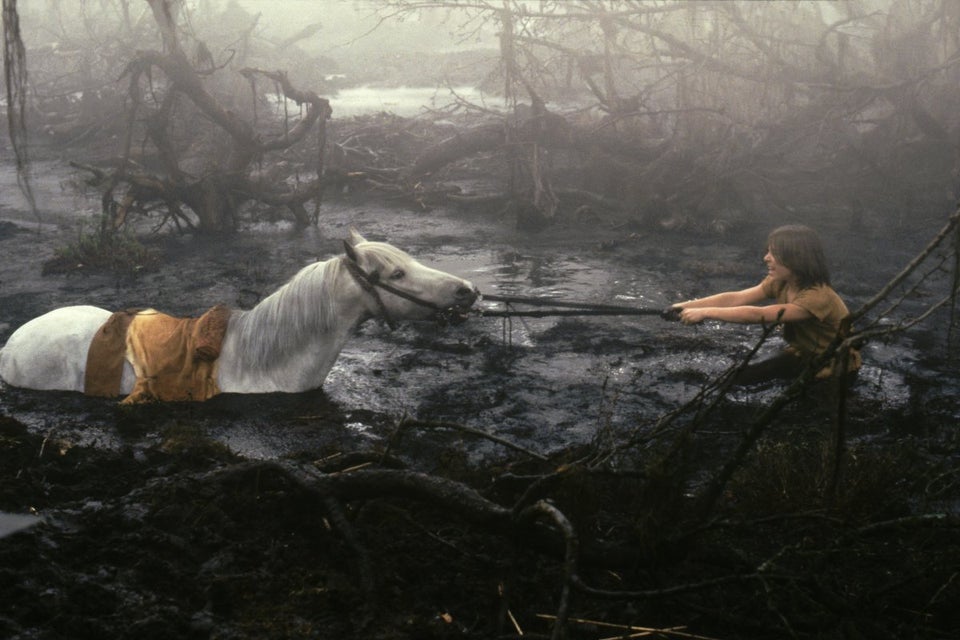
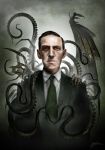



Lovely. Your last name stands out to me
October 8, 2021 at 6:45 am
Thank you!
October 8, 2021 at 6:10 am